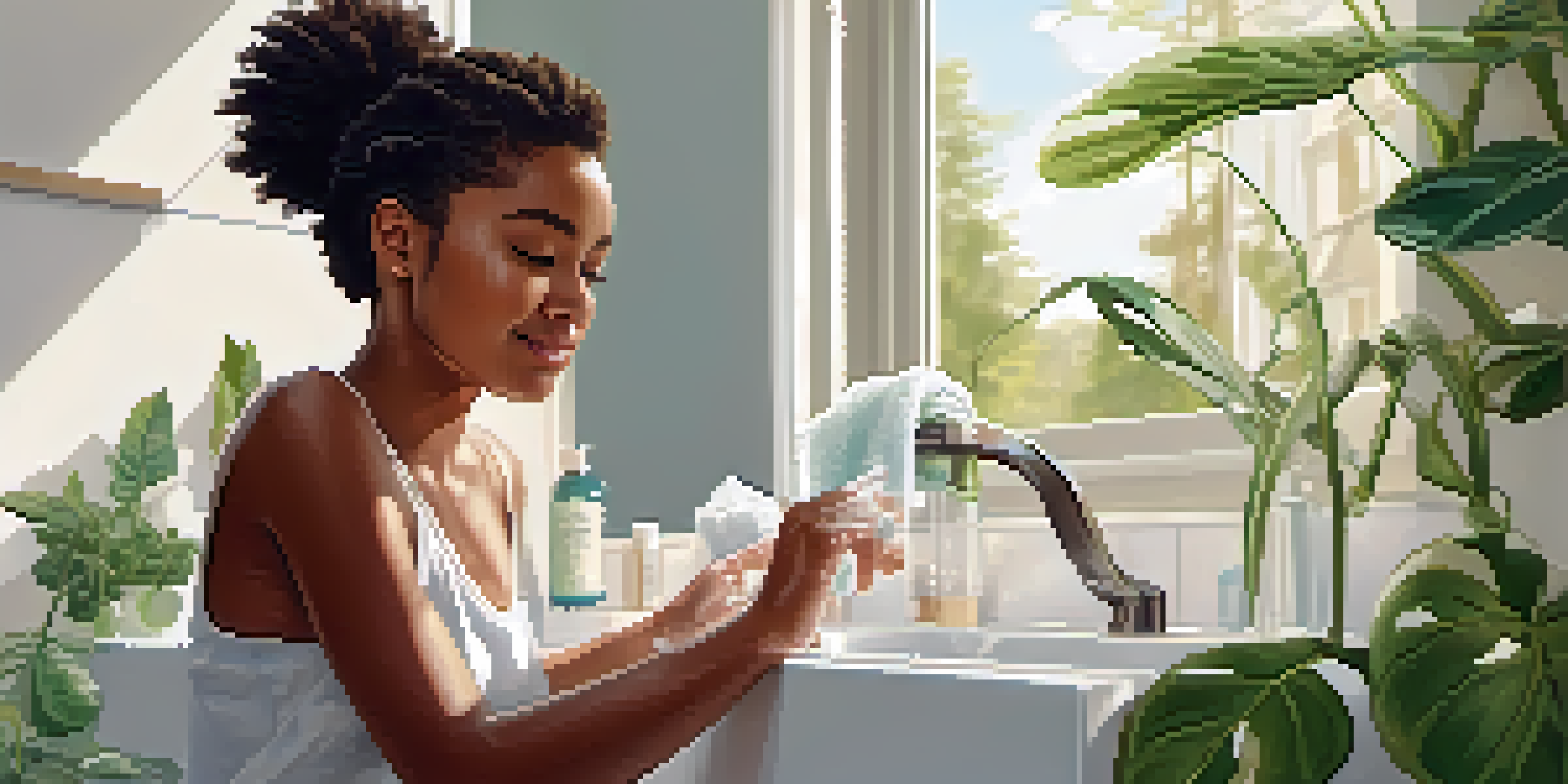Understanding Acne: Causes, Treatments, and Prevention Tips

What is Acne and Why Does It Happen?
Acne is a common skin condition that occurs when hair follicles become clogged with oil and dead skin cells. It can manifest in various forms, including pimples, blackheads, and cysts, and is most prevalent during puberty due to hormonal changes. Understanding the root cause of acne is crucial for effective management.
Acne is a skin condition that can affect anyone at any age.
There are several factors that contribute to acne development, including genetics, hormonal fluctuations, and lifestyle choices. For instance, increased oil production during puberty can lead to breakouts, while stress can exacerbate the condition. Knowing what triggers your acne can help you take proactive steps to manage it.
Acne is not just a teenage problem; many adults also struggle with it. Factors like hormonal imbalances, diet, and even certain medications can lead to adult acne. Recognizing that acne can affect anyone at any age helps to normalize the experience and encourages seeking treatment.
Common Causes of Acne: What to Look Out For
One of the primary causes of acne is excess sebum production, which can clog pores and lead to inflammation. This is often influenced by hormonal changes, particularly during puberty, menstruation, or pregnancy. Identifying these patterns can help you anticipate breakouts.

Another significant contributor to acne is bacteria, specifically Propionibacterium acnes. When oil and dead skin cells accumulate in hair follicles, this bacteria can thrive, leading to infection and inflammation. Maintaining a consistent skincare routine can help control bacterial growth.
Understanding Acne Causes
Acne is influenced by factors like hormones, genetics, and lifestyle choices, affecting both teenagers and adults.
Diet also plays a role in acne development. Some studies suggest that high-glycemic foods, dairy, and sugar may worsen acne for some individuals. Keeping a food diary to track your diet alongside breakouts can help pinpoint any food-related triggers.
Skincare Routine: The First Step in Treating Acne
Establishing a consistent skincare routine is essential for anyone dealing with acne. This typically includes cleansing, treating, and moisturizing to keep the skin balanced. Gentle exfoliation can also help remove dead skin cells that contribute to clogged pores.
The greatest wealth is health.
When selecting products, look for non-comedogenic labels, which means they won’t clog your pores. Ingredients like salicylic acid and benzoyl peroxide can be particularly effective in treating acne. However, it’s important to introduce new products gradually to avoid irritating the skin.
Always remember to remove makeup before bed to prevent clogged pores. Even gentle makeup can contribute to acne if left on overnight. A simple nightly routine can make a significant difference in the health of your skin.
Over-the-Counter Treatments: What Works?
Over-the-counter acne treatments can be a great starting point for managing mild to moderate acne. Common ingredients include benzoyl peroxide, salicylic acid, and alpha hydroxy acids, each targeting different aspects of acne formation. These treatments can help reduce inflammation and prevent new breakouts.
It's essential to use these products as directed, as overuse can lead to skin irritation and dryness. Start with a lower concentration and gradually increase it as your skin adjusts. Patience is key, as it can take several weeks to see significant improvements.
Effective Skincare Routines
A consistent skincare routine, including cleansing and using non-comedogenic products, is essential for managing acne.
In addition to topical treatments, some people find that incorporating supplements, like zinc or omega-3 fatty acids, can help improve skin health. However, it's always best to consult with a healthcare professional before starting any new treatment regimen.
When to See a Dermatologist for Acne
While many cases of acne can be managed at home, there are times when consulting a dermatologist is necessary. If your acne is severe, persistent, or leading to scarring, it’s important to seek professional help. A dermatologist can provide tailored treatment options that are not available over-the-counter.
Dermatologists may prescribe topical or oral medications, such as retinoids or antibiotics, to help control acne. They can also offer therapies like chemical peels or laser treatments, which may provide faster results for stubborn cases. Seeking help can lead to quicker relief and prevent long-term skin issues.
Additionally, if you’re experiencing emotional distress due to your acne, it’s worth discussing with a professional. Acne can significantly affect self-esteem, and there are support options available to help you cope with its psychological impacts.
Lifestyle Changes to Help Prevent Acne
Making certain lifestyle changes can significantly reduce the likelihood of breakouts. Start by maintaining a balanced diet rich in fruits, vegetables, and whole grains while minimizing processed foods and sugars. Staying hydrated is also crucial for healthy skin.
Regular exercise can improve blood circulation and reduce stress, both of which can positively impact skin health. Just remember to cleanse your skin after workouts to prevent sweat from clogging your pores. Finding a workout routine you enjoy can make this step easier to maintain.
When to See a Dermatologist
Consulting a dermatologist is crucial for severe or persistent acne to receive tailored treatment options and support.
Adequate sleep is another important factor. Lack of sleep can lead to stress and hormonal imbalances, both of which can trigger acne. Prioritizing rest not only benefits your skin but also your overall health and well-being.
Natural Remedies for Acne: Do They Work?
Many people turn to natural remedies for acne in search of gentler alternatives. Ingredients like tea tree oil, honey, and aloe vera have been touted for their antibacterial and soothing properties. While some may find relief with these options, it's important to approach them with realistic expectations.
Natural remedies can be effective for mild acne, but they often take longer to show results compared to conventional treatments. Conduct patch tests to ensure you don’t have an allergic reaction, and remember that what works for one person may not work for another.

Consulting with a dermatologist before trying natural remedies is a wise move, especially if you have sensitive skin or are experiencing severe acne. They can guide you on safe and effective options tailored to your skin type.